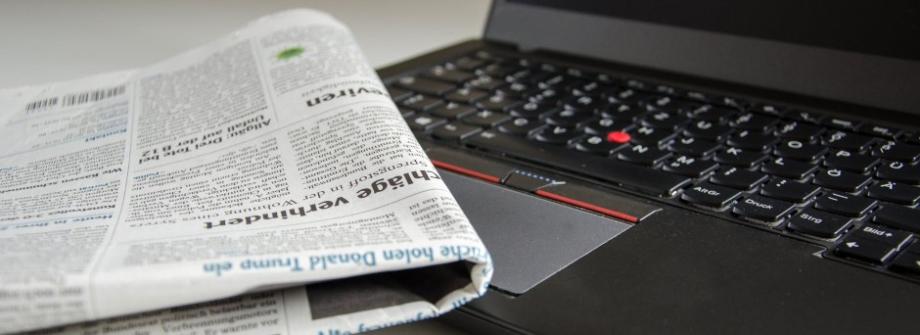
Prof. Alina Daniela Tanase, Fundeni Clinical Institute, University of Medicine and Pharmacy "Carol Davila", Bucharest, Romania, comments on the publication entitled "Acute kidney injury within 100 days post allogeneic hematopoietic cell transplantation is associated with increased risk of post-transplant complications and poor transplant outcomes" published in Bone Marrow Transplantation.
Acute kidney injury within 100 days post allogeneic hematopoietic cell transplantation is associated with increased risk of post-transplant complications and poor transplant outcomes
Madsen K et al.
Bone Marrow Transplant. 2022 Sep;57(9):1411-1420. doi: 10.1038/s41409-022-01744-0
Acute kidney injury (AKI) is a common complication after allogeneic hematopoietic cell transplantation (HCT), characterized as serum creatinine doubling within the first 100 days. The incidence of AKI ranges from 20% to 73%. AKI influences HCT results, reduces overall survival and is linked to the development or progression of chronic kidney disease (CKD). Therefore, an appropriate approach to this complication is critical.
The authors of this study aimed to determine whether acute kidney injury within 100 days after allogeneic HCT influences the outcome, using KDIGO definition and staging of AKI. The authors also evaluated the potential risk factors for AKI in transplanted patients. The study comprised 408 adult patients from a single center who underwent allogeneic HCT for any indication. Those who had a second allogeneic HCT were not eligible. GVHD prophylaxis included anti-thymocyte globulin, cyclophosphamide and cyclosporine.
In the first 100 days following allogeneic HCT, 64.2% of patients experienced AKI and 1.9% of all patients needed emergency dialysis. Patients who developed AKI in the first 100 days were older and more likely to be men. The presence of hypertension and diabetes was associated with a higher risk of developing AKI. Transplant-related factors associated more frequently with AKI were the use of myeloablative conditioning, the occurrence of thrombotic microangiopathy, venous-occlusive disease, grade 3–4 graft-versus-host disease (GVHD), and various infectious complications, such as BK cystitis, bacterial infections, and recurrent cytomegalovirus (CMV) reactivations. There were no differences in supratherapeutic ciclosporin levels between patients who developed AKI and those who did not. A reduced-intensity conditioning regimen, prophylaxis to avoid repeated CMV reactivations, bacterial infections, and sepsis, dual T-cell depletion therapy, and careful usage of nephrotoxic drugs may all help to reduce the risks of AKI. Patients who developed AKI had inferior 2-year survival, higher 2-year treatment-related mortality, and lower 2-year GVHD and relapse-free survival.
The limitations of this study result from the fact that it is retrospective, making it susceptible to confounding by other risk variables that were not assessed, such as susceptibility to renal failure, nephrotoxic drugs for hypertension, diabetes, or infections, prior lines of therapy, and disease burden. Also, the authors did not assess the risk of AKI in patients receiving tacrolimus or sirolimus as GVHD prophylaxis and they did not report the incidence of CKD in AKI patients.
This study emphasizes the importance of closely monitoring renal function and implementing strategies that prevent the occurrence of AKI. The authors identify the need for developing score calculators to identify patients at risk for AKI post-HCT.
References:
Krishnappa V, Gupta M, Manu G, Kwatra S, Owusu OT, Raina R. Acute Kidney Injury in Hematopoietic Stem Cell Transplantation: A Review. Int J Nephrol. 2016;2016:5163789. doi: 10.1155/2016/5163789.
Shimoi T, Ando M, Munakata W, Kobayashi T, Kakihana K, Ohashi K, Akiyama H, Sakamaki H. The significant impact of acute kidney injury on CKD in patients who survived over 10 years after myeloablative allogeneic SCT. Bone Marrow Transplant. 2013 Jan;48(1):80-4. doi: 10.1038/bmt.2012.85.
Kersting S, Koomans HA, Hené RJ, Verdonck LF. Acute renal failure after allogeneic myeloablative stem cell transplantation: retrospective analysis of incidence, risk factors and survival. Bone Marrow Transplant. 2007 Mar;39(6):359-65. doi: 10.1038/sj.bmt.1705599.
Sakaguchi M, Nakayama K, Yamaguchi H, Mii A, Shimizu A, Inai K, Onai D, Marumo A, Omori I, Yamanaka S, Fujiwara Y, Fukunaga K, Ryotokuji T, Hirakawa T, Okabe M, Tamai H, Okamoto M, Wakita S, Yui S, Tsuruoka S, Inokuchi K. Risk Factors for Acute Kidney Injury and Chronic Kidney Disease following Allogeneic Hematopoietic Stem Cell Transplantation for Hematopoietic Malignancies. Acta Haematol. 2020;143(5):452-464.